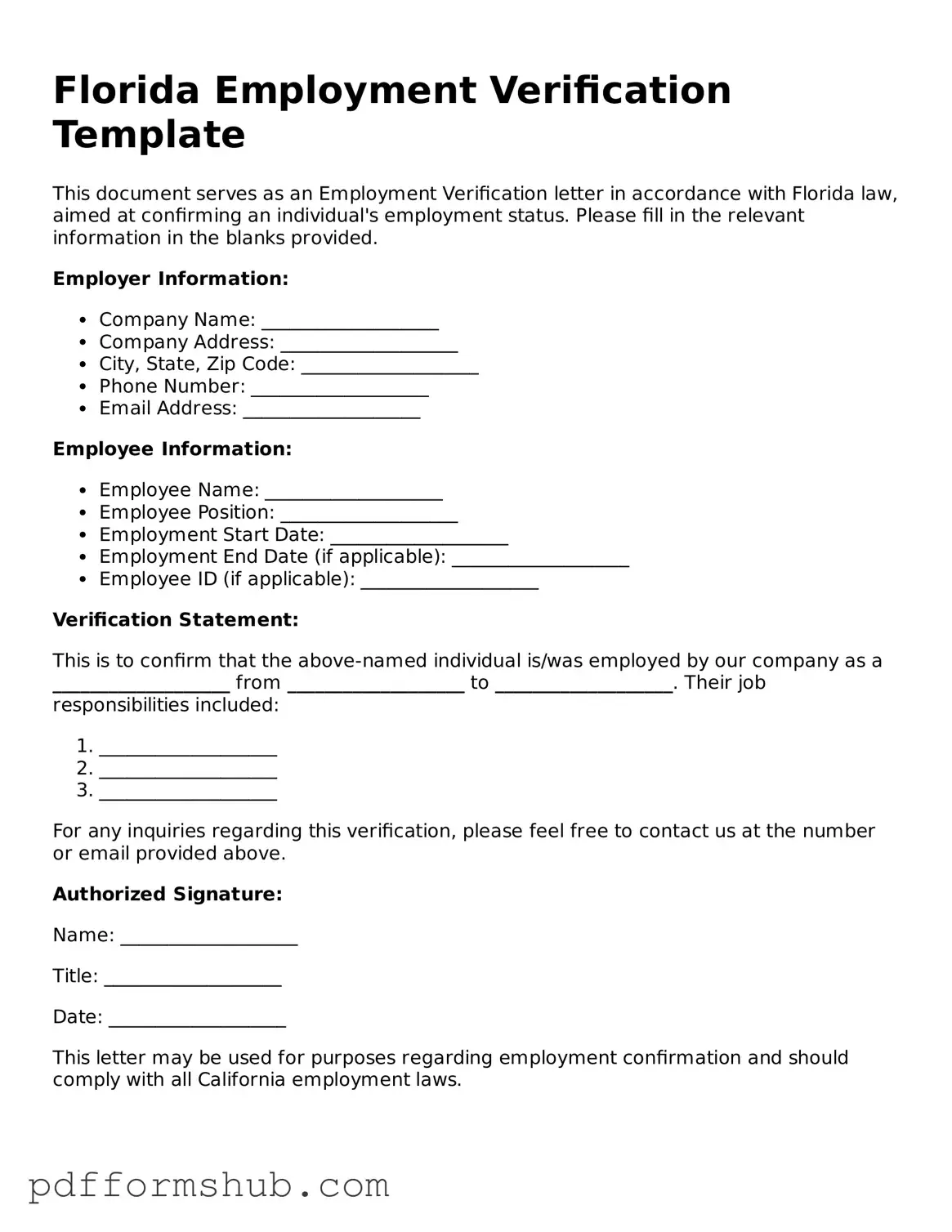Attorney-Verified Employment Verification Form for Florida State
The Florida Employment Verification form is a document used to confirm an individual's employment status and history in the state of Florida. This form is often required for various purposes, such as applying for loans, renting properties, or securing new job opportunities. To get started on filling out the form, click the button below.
Customize Form

Attorney-Verified Employment Verification Form for Florida State
Customize Form

Customize Form
or
Free PDF Form
Short deadline? Complete this form now
Complete Employment Verification online without printing hassles.